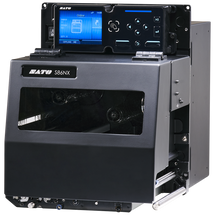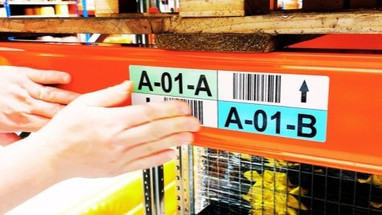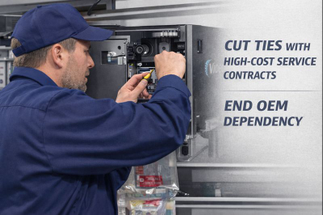In healthcare, accurate data capture is not just about efficiency, it is about saving lives. Automatic Identification and Data Capture (AIDC) technology, which includes barcoding, RFID, mobile computing, and scanning solutions, has transformed how hospitals, clinics, and medical centers operate. By ensuring that the right data is captured at the right time, healthcare providers can reduce errors, improve patient safety, and optimize operations in ways that were unthinkable just a few decades ago.
The Problem: Human Error in Healthcare
Before AIDC, medical data relied heavily on handwritten notes and manual entry. These processes were slow, error-prone, and often resulted in mistakes. A misspelled patient name, a transposed digit in a prescription, or a mislabeled sample could lead to life-threatening consequences. According to a 2016 study by Johns Hopkins, medical errors were the third leading cause of death in the U.S., claiming more than 250,000 lives each year. The healthcare system needed a better way to track patients, medications, and critical supplies.
The AIDC Solution
AIDC technology brings automation and accuracy to the forefront:
- Barcode Wristbands: Every patient receives a unique barcode wristband upon admission. Scanning the wristband ensures that medications, lab results, and treatments are matched to the correct patient every single time.
- RFID Tags: RFID allows for real-time tracking of equipment, medications, and even patients in large facilities. For example, infusion pumps and ventilators can be located instantly, ensuring no time is lost in emergencies.
- Mobile Computers and Scanners: Clinicians can scan barcodes on medications at the bedside, instantly verifying the "five rights" of medication administration: right patient, right drug, right dose, right route, and right time.
- Labeling Systems: Accurate labeling of lab samples prevents mix-ups, ensuring test results go to the right patient.
Case Studies and Real-World Impact
- Medication Safety (FDA report, 2021): The adoption of barcode medication administration (BCMA) systems reduced medication errors by up to 41 percent in hospitals that deployed them. This directly translates to fewer adverse drug events and lives saved.
- Blood Transfusion Safety (Journal of Patient Safety, 2019): Hospitals that implemented barcode scanning for blood products reduced transfusion errors to near zero. This is critical because mismatched blood transfusions can be fatal.
- COVID-19 Vaccine Rollout (CDC, 2021): AIDC played a huge role in the safe and efficient distribution of vaccines. Barcode scanning ensured that vaccine doses were tracked, stored properly, and administered with accurate patient records, minimizing waste and errors.
Lean Healthcare and AIDC
From a Lean perspective, AIDC eliminates waste in multiple forms:
- Defects: Wrong medications or mislabeled lab samples are eliminated with automated scanning and verification.
- Waiting: RFID tracking helps staff locate equipment faster, reducing downtime and speeding up patient care.
- Overprocessing: Automating data entry reduces the need for repeated checks and rework.
- Inventory Waste: Smart labeling and tracking systems prevent stockouts or expired medications from being used.
By reducing these inefficiencies, healthcare providers not only save time and money but also increase patient safety and trust.
Looking Ahead
The future of AIDC in healthcare is promising. With advancements in mobile computing, IoT integration, and AI-driven analytics, data capture will only become more precise and impactful. Imagine a hospital where every patient, dose of medication, and piece of equipment is tracked seamlessly in real time. This is not science fiction, it is the direction healthcare is heading, and AIDC is the backbone of that transformation.
Conclusion
Accurate data capture is not only about operational efficiency but also a matter of life and death. By leveraging AIDC technologies like barcodes, RFID, and mobile scanning, healthcare providers can minimize errors, improve safety, and streamline workflows. The evidence is clear: lives have already been saved, and countless more will be safeguarded as these systems continue to advance.
Healthcare is about trust. With AIDC, providers can deliver care that is faster, leaner, safer, and more reliable.
Recent Posts
Feb 3rd 2026
SATO vs Zebra Printers and Print Engines
Jan 19th 2026
Cycle Counts Are a Symptom
Jan 12th 2026



